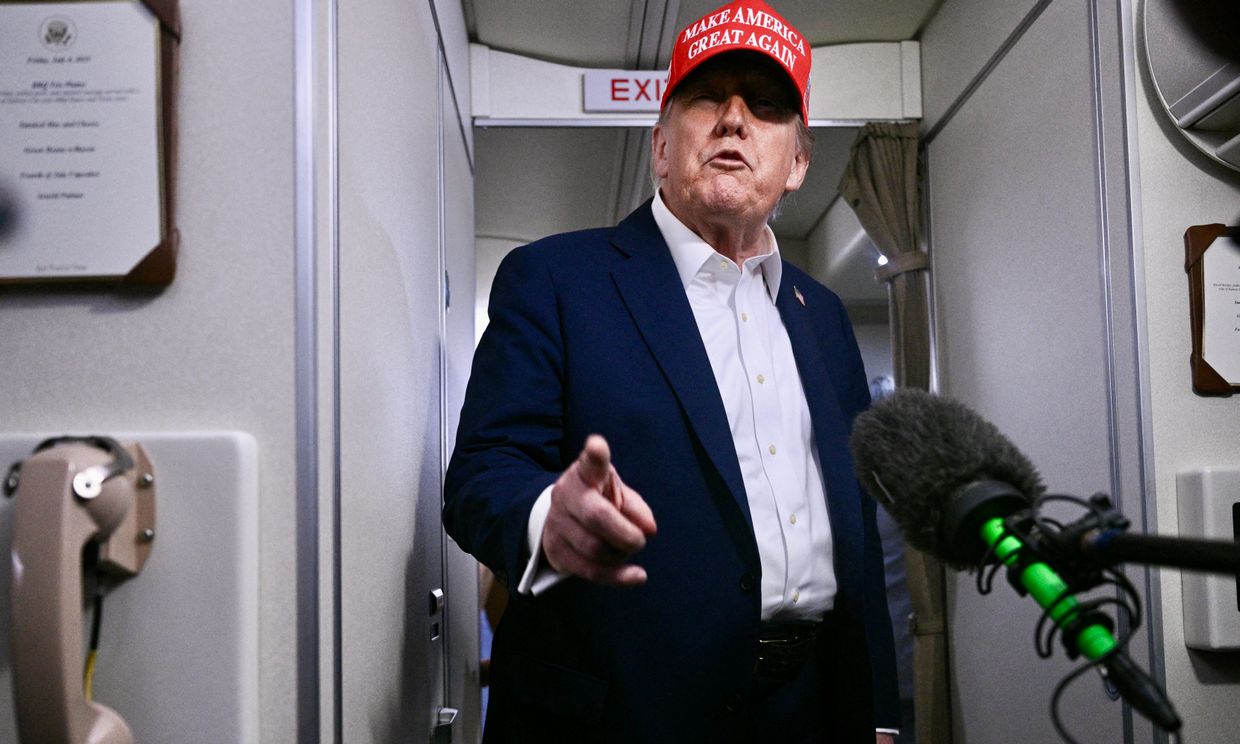Russian airports cancel nearly 300 flights amid drone attacks on Russia

Editor's note: The story was updated with new reports about operations at Russian airports during drone strikes.
Several Russian airports have canceled flights due to safety concerns over Ukrainian drone attacks, the Russian Federal Aviation Agency (Rosaviatsia) reported on July 6.
Rosaviatsia reported on the evening of July 6 that 287 flights had been grounded across three major airports: Moscow's Sheremetyevo, St. Petersburg's Pulkovo, and Strigino Airport in Nizhny Novgorod.
The restrictions follow a wave of closures the previous night, also triggered by drone threats. Russia's Defense Ministry claimed that it had intercepted 120 drones on Russian territory overnight between July 5 and July 6.
Ukraine hasn't commented on the report. Kyiv's drone campaign, which has increasingly disrupted civilian air travel in Russia, is part of Ukraine's broader strategy to undermine Russia's logistics far beyond the front line.
Rosaviatsia confirmed the temporary pause in flights at Moscow's Sheremetyevo airport, citing airspace restrictions over the capital and strong winds. At Sheremetyevo, 171 flights were canceled and 56 more were delayed, causing crowds of passengers to form at the airport.
At Pulkovo, 90 flights were canceled and 37 remain delayed due to safety concerns. In Nizhny Novgorod, 26 flights were canceled and 13 delayed. Flight restrictions have also been imposed on Russia's Ivanovo, Kaluga, Pskov, and Tambov airports, the agency said.
The Kyiv Independent couldn't immediately verify these claims.
This latest drone attack on Moscow follows an earlier Ukrainian operation targeting the Borisoglebsk airfield in Russia's Voronezh Oblast overnight on July 5.
Ukraine's General Staff reported that the strike damaged a warehouse containing guided bombs, aircraft, and other military assets.
The Borisoglebsk airfield is known to host Su-34, Su-35S, and Su-30SM jets, which Russia regularly employs in air strikes against Ukraine. Military assessments are underway, with initial reports suggesting a training and combat aircraft may have been destroyed.
NASA's Fire Information for Resource Management System (FIRMS) detected a fire near the Borisoglebsk military airfield shortly after the strike. Residents in the area reported 8–10 powerful explosions around 2 a.m. local time, according to the Russian independent outlet Astra.
The attack on Borisoglebsk was part of a broader overnight drone campaign across Russia, with explosions and fires reported in at least six regions.
Serhii Bratchuk, spokesperson for the Ukrainian Defense Army's Southern Division, told the Kyiv Independent in May that Ukraine is shifting its drone strategy, deliberately aiming to disrupt Russian aviation operations and make the war visible to the Russian population.

















